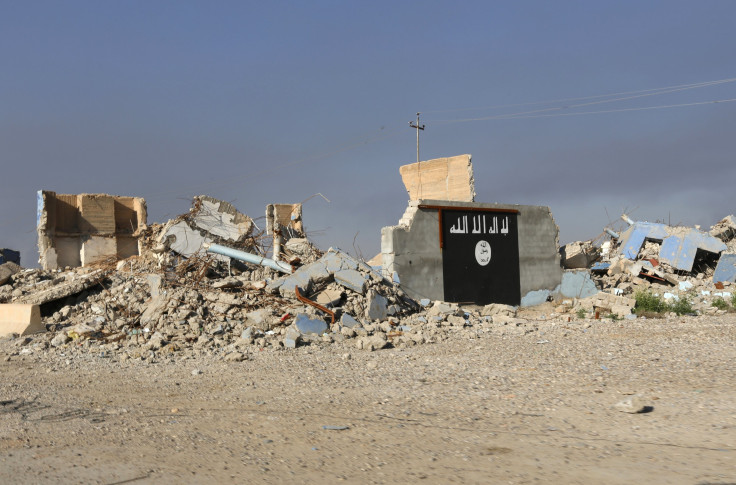ISIS Destroys Christian Churches In Iraq, Replaces Crosses With Islamic State Black Banner

Militants with the Islamic State published photos online Monday that appear to show the terrorist group destroying Christian churches in Iraq and replacing their centuries-old crosses with the organization’s emblematic black banner. The images depict Islamic State, also known as ISIS, fighters taking sledgehammers to church facades, toppling statues, removing church bells and dismantling ancient Christian relics.
"They don't care what it's called; they are just following their ideology and that means getting rid of churches and minorities," Steven Stalinsky, executive director of the Middle East Media Research Institute, told Fox News. "It is the Islamic State, and there's no room for anyone else. ... This has been going on for some time, a systematic campaign to rid the region" of Christian iconography.
The Islamic State has been gaining ground in the Middle East, recently advancing into Libya and having made headway in Iraq and Syria. Over the weekend, ISIS supporters in Libya clashed with Libyan forces for the first time since the terrorist group declared its presence there.
At the same time, ISIS forces appear to be weakening. The group has suffered significant defeats in recent weeks, signaling that its fighters might now be on the defensive, according to Vox.
That hasn’t stopped the group from targeting some of the region’s most cherished artifacts, which ISIS has indicated it believes are idolatrous. In February, footage emerged of the terrorist group destroying 3,000-year-old Assyrian artifacts at the Mosul Museum in Iraq. The terrorist organization had occupied the museum since last summer.
Earlier this month, ISIS fighters reportedly demolished the site of Nimrud, the ancient Assyrian capital located 18 miles south of Mosul. The group smashed tablets and statues that were thousands of years old. Militants also were suspected of bombing the Mosul Central Library, which contains tens of thousands of priceless books and rare manuscripts from Middle East history.
© Copyright IBTimes 2024. All rights reserved.






















